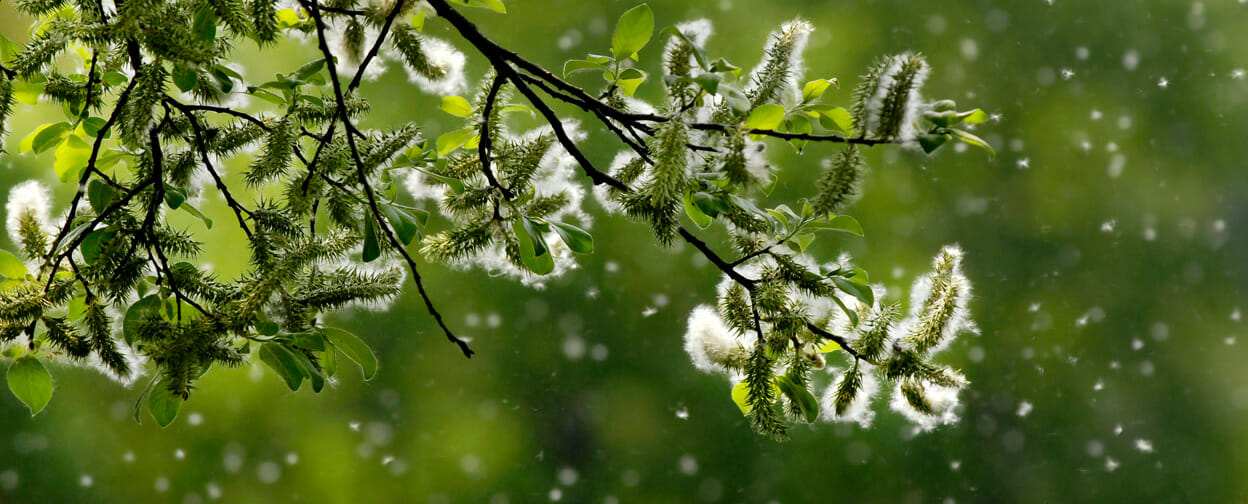February 20, 2020
Winter Weather Impacts Spring Allergies

How bad will spring allergy season be? Just a moment while we consult our trusty crystal ball. (If only!)
So many factors play into pollen counts that it’s nearly impossible to predict with any real accuracy. However, researchers have noticed interesting trends that impact the timing and amount of pollen released in a given season.
Overall, the United States has experienced a warmer winter than usual. According to the National Oceanic and Atmospheric Administration (NOAA), we had the fifth-warmest January in 126 years. Cities across the country already tied or set 5,500 record warm highs or lows in the first six weeks of 2020.
This mild winter weather means we are in for a longer spring tree pollen season because trees pollinate early, and unfortunately they do not stop pollinating any earlier than usual. This leads to an allergy season that’s a few weeks longer than the average in previous years.
When we experience a mild winter like this year, and then spring decides to take us on a roller coaster of cold and warm temperatures, the periods of warmer weather encourage trees to quickly and intensely release pollen while they have the chance. No tree allergy-sufferer wants to hear about an intense burst of pollen in the air!
Late fall and winter rain also affects spring pollen. While you may enjoy snuggling by a warm fire when it’s cold and wet outside, more rain means trees will release more pollen in the spring.
So if a mild winter means a long spring allergy season, a colder-than-average winter should mean spring allergy patients can breathe easy, right? Not so fast. A cold winter may result in a later spring, so pollination and tree allergy season would be delayed. However, that late spring start can result in a large variety of trees releasing their pollen all at once instead of staggered throughout the season. That leads to some brutal days for people with multiple tree allergies.
As average temperatures trend upward worldwide, scientists see increased levels of the airborne allergens that send us into sneezing fits. Regardless of weather trends, asthma and allergy sufferers must remain proactive about allergy management.
If you know your body goes haywire when tree pollen comes out to play, make sure you and your allergist have an action plan to get ahead of your symptoms and keep them from bringing you down. Stock up on your medications, and keep an eye on the pollen forecast. Bringing your plans indoors on a high pollen day can make a substantial difference in how you feel.
